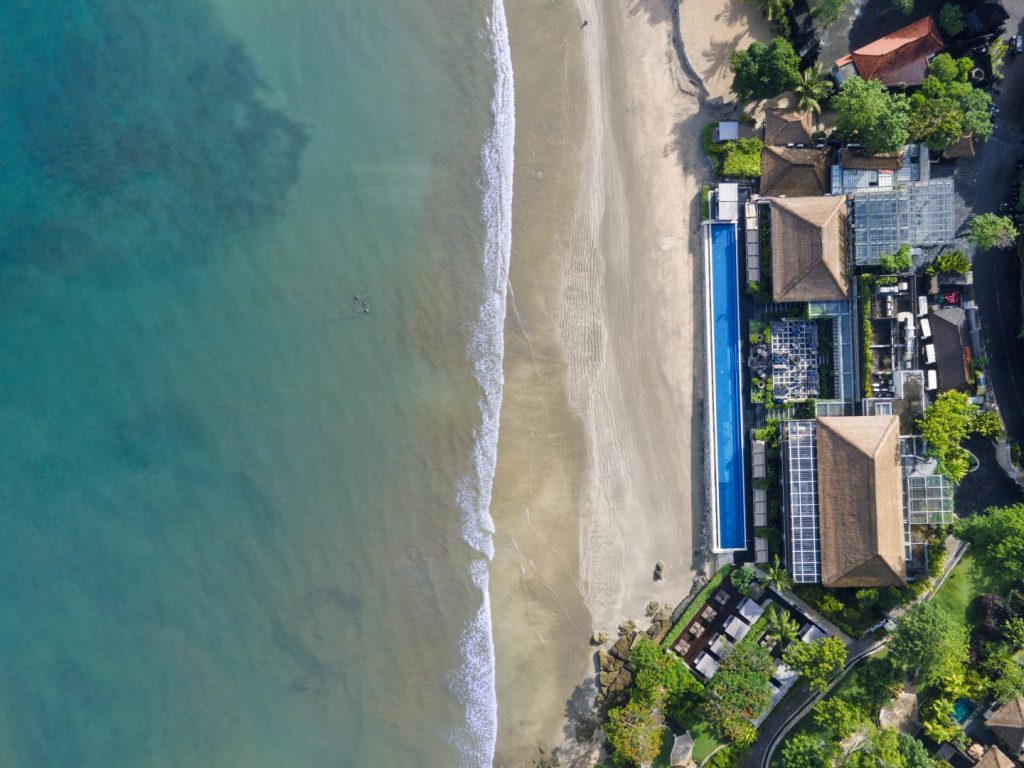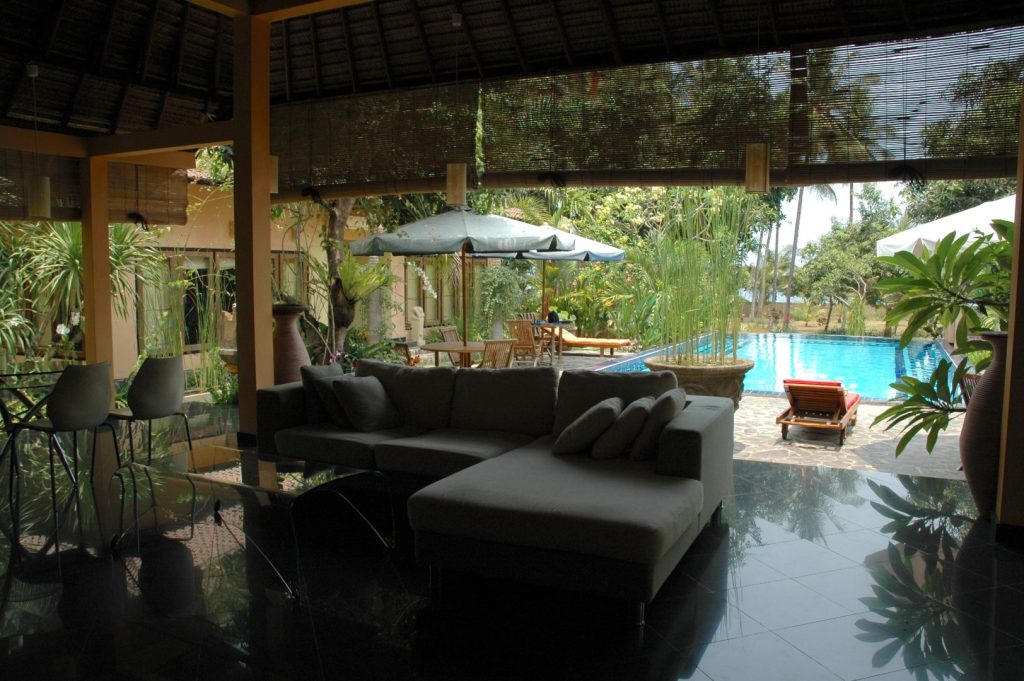The Untold Secret of Exit Strategy in Bali Real Estate
Estimated Reading Time: 10 minutes
Buying in Bali is easy. Everyone loves the story of finding the perfect villa, getting the keys, and seeing rental bookings roll in.
But here’s the truth nobody tells you: The foundation of a successful investment is laid when you buy, but your actual profits are only realized when you sell.
Too many investors focus only on the entry point — the glossy brochure, the beautiful renders, the handover photos. Then, when it’s time to sell, they find themselves stuck: short lease, missing documents, messy rental history, wrong timing.
The difference between a smooth 30% ROI exit and a stressful fire sale often comes down to one thing:
Having a clear exit strategy from day one.

Key Takeaways
- The Bali real estate market is shaped by tourism cycles and local regulations. A clear exit plan protects your investment.
- Timing is crucial: monitor rental yields, market trends, and legal shifts to identify the optimal moment to sell.
- Work with experienced professionals and stay updated on local law to avoid costly mistakes.
- Proper documentation, legal compliance, and transparent dealings boost your property’s value and ease the sales journey.
Why Exit Planning Matters in Bali
Bali is not Dubai or Phuket. It’s not Texas or Sydney. It’s a market with unique rules:
- Leasehold vs Freehold: Most foreign investors buy leasehold, which has a ticking clock.
- Dynamic regulations: Zoning, tax laws, ownership structures change more often than you’d expect.
- Tourism cycles: Seasons, global travel trends, and external shocks (pandemics, airline routes, government policy) all affect demand.
- Buyer psychology: Lifestyle buyers, digital nomads, investors, and funds each value properties differently.
That’s why an exit strategy is not optional here — in todays climate it’s mandatory.

The 6 Proven Exit Strategies in Bali Real Estate
Below are the 6 most common and effective exit strategies we see in Bali. Each one fits a different investor profile. Pick the one that aligns with your goals, plan it from day one, and you’ll never be stuck.
1. Flip at Completion (Off-Plan → Handover)
One of the fastest exit strategies in Bali real estate is the off-plan flip. You purchase during the pre-construction phase, when prices are lowest, and sell as soon as the villa is completed. This approach allows you to capture the emotional premium that buyers are willing to pay for brand-new, fully finished villas. Brand new completed villas are always on the radar for some buyers. They have no issue to pay 20–35% more than you did.
But here’s the nuance:
Don’t hold too long. Once it’s rented, the conversation shifts to yield math, and the emotional premium disappears.
Best for: Short-term ROI seekers.
2. Rent for 2–4 Years, Then Sell as a Business
Another powerful exit strategy in Bali is to operate your villa as a profitable rental business before selling. Instead of selling “just a property,” you position it as a cashflow-producing asset with an established track record.
Well-managed villas that consistently generate 10%+ rental yield are highly attractive to other investors who want immediate returns without setting up operations themselves. These buyers often pay a premium for proven numbers and smooth management.
Best for: Cashflow investors looking to grow their recurring income.
Pro tips: To maximise resale value
- Keep complete financial records (villa rental income and expenses, booking reports).
- Maintain guest reviews and strong online visibility.
- Document maintenance, upgrades, and service history.
Cashflow investors make their decisions based on numbers and facts, not emotion. They pay premium for clarity and documented cashflow. Keep documentation in pristine order for best possible outcome.
3. Rent Until Break-Even, Then Extend the Lease and Exit at a Premium
This is one of the most effective Bali property exit strategies because it combines cashflow, capital preservation, and value creation.
Step one: operate your villa as a rental for several years until you reach break-even on your initial investment. By this stage, you’ve already recouped your capital through occupancy income and built a proven rental track record, a key selling point for buyers.
Step two: extend the lease before you list the property for sale. In Bali real estate, leasehold tenure is one of the biggest factors influencing buyer demand. Short leases dramatically reduce interest and resale value, while long leases attract both lifestyle buyers and yield-driven investors.
- A villa with 15 years left on the lease is often a tough sale.
- The same villa with 40 years remaining can command 30–40% higher resale value.
Timing is critical. Always extend before marketing the property, not during negotiations. Buyers don’t want uncertainty, and the cost of extension is often far less than the uplift in valuation you’ll achieve.
Best for: Investors targeting a resale within 6-8 years, who want to maximize profit without holding for decades.
Pro Tip: Don’t wait until the lease dips under 15 years. That’s when market demand collapses and value falls off a cliff. Be proactive, not reactive and extend before you list villa for sale.
4. Hold the Full Lease Term for Cashflow – Milk the Cow until There is No Milk Left
For long-term, passive investors, one of the simplest strategies is to hold the villa for the entire lease term and maximize rental income throughout.
Think of it as milking the cow until there’s no milk left. Instead of aiming for a resale premium, you extract value through steady cashflow year after year. This approach turns your villa into a yield asset that functions more like a dividend-paying stock than a speculative flip.
At the end of the lease, you have two options:
- Walk away, having fully monetized your investment through rental returns.
- Negotiate a lease extension with the landowner to continue operations or prepare for resale.
This strategy works well if your goal is stable, predictable ROI rather than chasing market timing or resale gains.
Best for: Lifestyle buyers, retirees, and passive investors focused on consistent cashflow over liquidity.
Risk: Once the lease expires, the property has no resale value unless you secure an extension. That’s why proactive lease negotiations remain essential even for long-term holders.
5. Developer Buy-Back or Secondary Investor Network
For investors who prioritize speed, liquidity, and certainty over chasing the absolute highest price, the developer buy-back or secondary investor network resale is a practical exit strategy in Bali real estate.
Some reputable developers, including Investland Bali – offer structured buy-back programs or tap into their established network of investors to facilitate quick resales. While these solutions are not always guaranteed, being part of a strong ecosystem significantly increases your chances of a seamless exit.
The trade-off:
- You may not capture the same premium valuation as you would on the open market.
- But you gain speed, security, and reduced friction in the sales process.
For many investors, that balance is worth it – especially when timing, liquidity, or capital redeployment matters more than maximizing the last dollar.
Best for: Investors who want additional exit options and peace of mind knowing they’re not solely dependent on the open market.
6. Sell to Your Neighbours (The Overlooked Strategy)
One of the most overlooked, yet highly effective exit strategies in Bali real estate is to sell directly to your neighbours.
Why does this work so well?
- Neighbours already understand the location, cashflow, and management model because they experience it daily.
- They’ve built trust in the product by running their own unit successfully.
- They can easily predict performance since they’re living the same numbers.
This makes them some of the fastest and most reliable buyers you’ll ever find. In fact, many owners in Bali expand their portfolio by simply buying the villa or apartment next door.
And here’s the insider’s note:
This is Kristjan’s favourite strategy. Even back in Europe, selling to neighbours was often one of the most effective and easiest deal opportunities – and it continues to hold true in Bali.
Best for: Units inside multi-villa or apartment developments with proven rental cashflow.

5 Critical Factors That Determine Your Exit Success in Bali Real Estate
No matter which Bali property exit strategy you choose, your results will be determined by how well you manage these five levers. Get them right, and you’ll command premium offers. Get them wrong, and you’ll leave tens (sometimes hundreds) of thousands on the table.
1. Timing the Market
In Bali real estate, when you sell matters almost as much as what you sell.
- Think of it like Europe: try selling a countryside home in October or November when it’s cold, rainy, and grey – not exactly when buyers are in the mood to imagine summer holidays. The same psychology applies in Bali. While the climate doesn’t swing as dramatically as Estonia’s “bad ski weather,” seasonality and timing still play a big role.
- Exiting during peak tourism months or right before new regulations are introduced can add 5–15% to your sale price.
- Selling in low season or when uncertainty clouds the market often means longer time on market and steeper buyer negotiations.
Rule of thumb: Watch tourism arrivals, government policy shifts, and local development trends – these factors shape buyer psychology more than almost anything else in Bali’s property market.
2. Buyer Profile
One of the biggest mistakes sellers make in Bali real estate is trying to pitch every property to every type of buyer. That’s like serving the same dish to a vegan, a bodybuilder, and a fine-dining critic – someone’s walking away disappointed.
The truth is, each buyer group values very different things:
- Investors want yields and hard numbers. Show them occupancy rates, net ROI, and growth potential.
- Lifestyle buyers (families, expats, digital nomads) pay premiums for design, comfort, and move-in readiness. They’re driven more by emotion than spreadsheets.
- Funds and institutional investors care almost exclusively about track record and compliance. They want audited financials, clean permits, and scalability.
Rule of thumb: Identify who your most likely buyer is and speak their language. Sell numbers to investors, sell lifestyle to families, sell credibility to funds.
3. Lease Status
In Bali, leasehold tenure is the single biggest driver of resale value. Forget design, forget furniture – if the lease clock is running short, buyers will slash offers without hesitation.
- Properties with under 15 years left often get heavily discounted (sometimes by 30–40%).
- Villas with 30–40 years remaining are far more attractive and command premium pricing.
Rule of thumb: Don’t wait until you’re under 15 years to think about an extension. Proactively negotiate early, secure long tenure, and lock in higher resale value.
Now, here’s something most investors overlook:
The average project in Bali is sold with a 25-year leasehold. Think of it like buying a new car – you drive it out of the showroom and instantly lose 10% of the value. A 25-year lease isn’t quite that extreme, but it works the same way on your balance sheet: the moment you sign, the lease clock starts ticking and your asset begins depreciating.
That’s fine if you have lease extension terms agreed for later, but there’s a smarter way.
You can sign the lease extension agreement simultaneously with the main lease agreement.
For example: structure it as 25 + 25 years, with the extension beginning the day the main lease ends. Yes, you pay for the extension in advance – but here’s the payoff:
- You now hold a 50-year leasehold without worrying about future land price hikes.
- You avoid stressful negotiations, disputes about “market rates,” or chasing the landowner to the notary years down the line.
- Most importantly, a 50-year lease not only protects your investment — it makes your property appreciate in line with the market (as long as there’s more than 25 years left, buyers treat it as a growth asset, not a depreciating one).
This is one of the most powerful ways to protect ROI in Bali real estate, and very few investors are even aware it’s possible.
4. Documentation & Compliance
In Bali, paperwork is currency. The cleaner and more complete your documentation, the faster your property sells, the more serious buyers you attract, and the higher your final price.
For international buyers especially, documentation equals trust. If even one paper is missing, buyers either walk away or slash their offers.
A complete compliance package should include:
- PBG/IMB – Building permits proving construction legality.
- SLF – Certificate of building worthiness (mandatory for resale and rental licensing).
- Zoning certificate – Confirmation that the land use matches your property’s function (residential, commercial, tourism).
- Tax receipts – PBB land tax, VAT (if applicable), and proof of no outstanding liabilities.
- Rental licenses & operational approvals – Required if you’re running short-term rentals legally.
Rule of thumb: If your documents are incomplete, expect delays, endless negotiations, or heavy discounts. Clean paperwork signals professionalism and unlocks premium buyers.
5. Presentation
Presentation is the cheapest ROI booster in Bali real estate. With a relatively small investment, you can completely shift buyer perception and speed up your exit.
- A $3,000 refresh – new paint, upgraded furniture, landscaping can add $30,000+ in perceived value.
- Professional photos and videos are non-negotiable. In Bali’s competitive market, buyers often decide which villas to visit based purely on online visuals.
Rule of thumb: Stage your villa as if it’s going to be featured in a design magazine. You’re not just selling walls and land – you’re selling a dream lifestyle.
How Investland Bali Helps Investors with Their Exit Strategy
Most real estate companies in Bali focus only on the sale. At Investland Bali, we have built something different: an entire ecosystem that supports you through the full life cycle of your investment.
From the very first idea, to acquiring land, designing and constructing, managing rentals, maintaining quality, and eventually planning your profitable exit — we are there at every stage.
Here’s how we do it:
- Lease Extensions (Handled Early): We negotiate extensions before value starts dropping, so you’re never forced into a discount sale.
- Compliance & Documentation: From PBG and SLF to zoning and tax records, we make sure every piece of paper is in place – giving buyers full confidence.
- Rental Management & Track Record: We don’t just rent your villa, we build a documented, provable income history that makes it irresistible to investors.
- Renovation & Staging: Small, targeted upgrades and professional presentation that can add tens of thousands in perceived value.
- Global Buyer Network: Direct access to our pool of lifestyle buyers, institutional investors, and funds actively looking for Bali property.
- Flexible Exit Options: Whether you want to list on the open market, sell discreetly within our investor circle or any other way – you’ll always have more than one door open.
The bottom line: When you invest with us, you’re not just buying a villa. You’re entering a system designed to take care of you from concept to exit, with a team of experts guiding you every step of the way.
Investland Bali — Your Trusted Partner in Bali Real Estate.
Conclusion: In Bali, Entry Is Easy. Exit Is Strategy.
In Bali real estate, the smartest investors know this truth: you make money when you buy, but you realize that money when you exit.
Buying off-plan at the right price, in the right project, sets you up for success. But without a clear exit strategy, even the best purchase can turn into a missed opportunity.
Here’s what separates the pros from the amateurs:
- Plan your exit at entry. Don’t wait until the lease runs short or the market shifts.
- Document everything. Numbers, permits, rental history – clarity builds trust and drives value.
- Work with the right partner. In Bali, success comes from knowing the terrain, the people, and the process inside out.
You make money when you buy, but you keep it when you exit right.
Bonus Resources:
FAQ: Exit Strategies in Bali Real Estate
Question 1: What documents do I need to sell my Bali property?
Answer: A complete compliance package: land title (SHM, HGB, or lease agreement), PBG/IMB building permits, SLF (building worthiness certificate), zoning confirmation, proof of paid taxes (PBB, VAT if applicable), plus rental licenses, income reports, and maintenance logs. Missing documents = delays and discounts.
Question 2: Can foreigners directly sell their Bali property?
Answer: Yes. The process depends on ownership structure:
- Leasehold: You sell your remaining lease rights.
- Freehold via PT PMA: The company sells the property or shares.In both cases, you’ll need a licensed notary and tax compliance to finalize the deal.
Question 3: How long does it usually take to sell a villa in Bali?
Answer: With proper preparation (documents, staging, pricing), most villas sell within 3–9 months. Properties with short leases, poor records, or unfinished paperwork can take much longer.
Question 4: What taxes and fees should I expect?
Answer:
- 10% leasehold tax (paid by the seller)
- Notary & legal fees (varies by case)
- Agent commission (typically 5%)
- Lease extension cost (if you extend before sale)
Always confirm exact figures with a local notary or accountant before listing.
Question 5: Should I extend my lease before selling?
Answer: Yes, in most cases. Villas with under 15 years left on the lease often get discounted heavily. Extending to 30–40 years before listing can increase your resale value by 30–40%.
Question 6: How important is rental history for resale?
Answer: Extremely. Buyers and funds pay premiums for villas with 2–3 years of documented rental income and strong guest reviews. No history = heavy buyer discounts.
Question 7: Can I repatriate my sale proceeds overseas?
Answer: Yes. Funds can be transferred abroad with proper tax clearance and documentation. Work with a specialist accountant to ensure compliance and avoid unnecessary capital gains or repatriation issues.
Question 8: What’s the fastest way to exit if I don’t want to wait?
Answer: Options include selling to your neighbours inside the same development, using a developer buy-back, or reselling within an investor network. These bring speed and certainty, though usually at a slightly lower premium than open market sales.






